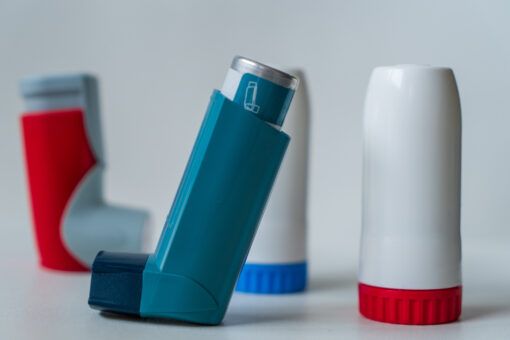
The most common inhalers used in the UK at the moment are metered dose inhalers (MDIs), also known as aerosol spray inhalers or puffers. These contain propellants which are potent greenhouse gases thousands of times more powerful than carbon dioxide. This is why inhalers contribute to 3-4% of the entire NHS carbon footprint. Other countries use far more dry powder inhalers (DPIs) which are much lower carbon footprint as they do not contain propellant gases. Many patients find DPIs much easier to use too. You can learn more about inhalers and the environment at greeninhaler.org
If you are concerned about the possible environmental impact of your inhalers it is very important that you discuss this with your doctor or nurse, rather than just stopping your inhalers, so that any changes can be agreed and made safely.
If you use inhalers and wish to reduce the environmental impact of your treatment there are three main things you can do:
Make sure your disease control is as good as it can be
The most important issue is that the best treatment regime for you and the planet is the one which controls your asthma or COPD well. If you need to use your reliever (blue/Salbutamol) inhaler more than three times in a week, this can be a sign that your asthma is not well controlled. If this is happening, you should talk to your doctor/nurse about this.
Review your treatment with your doctor, nurse, or pharmacist
Dry powder inhalers can be used by most people with asthma and need a quick and deep breath for the medicine to reach the airways. They usually come with a dose counter so you can track your medication use and don’t need a spacer device.
Starting or changing to a dry powder inhaler is a good way for many people to improve their care and reduce its environmental impact. But for some people MDIs will remain the best option. It’s really important that you talk about any changes to your inhaler device with your doctor, nurse or pharmacist. If your doctor or nurse doesn’t know about the environmental impact of inhalers you can tell them about the ‘For GPs’ section of this website which has more information.
Do not throw used or unwanted inhalers in the bin. Return them to the pharmacy.
Please return all inhalers and other medications to pharmacies, where they will be sent for clinical incineration. This is much better than disposing of them in household waste as if they end up in landfill the propellant gases are released into the atmosphere contributing to climate change. At the moment there are no widespread inhaler recycling schemes (there is a small scale scheme in Leicestershire, see in the Local Groups East Midlands Section). Don’t put your inhaler in kerb side recycling as it won’t be recycled.
There is lots more useful information on the website: greeninhaler.org
To listen to a great BBC Radio 4 discussion about inhaler options click here.
